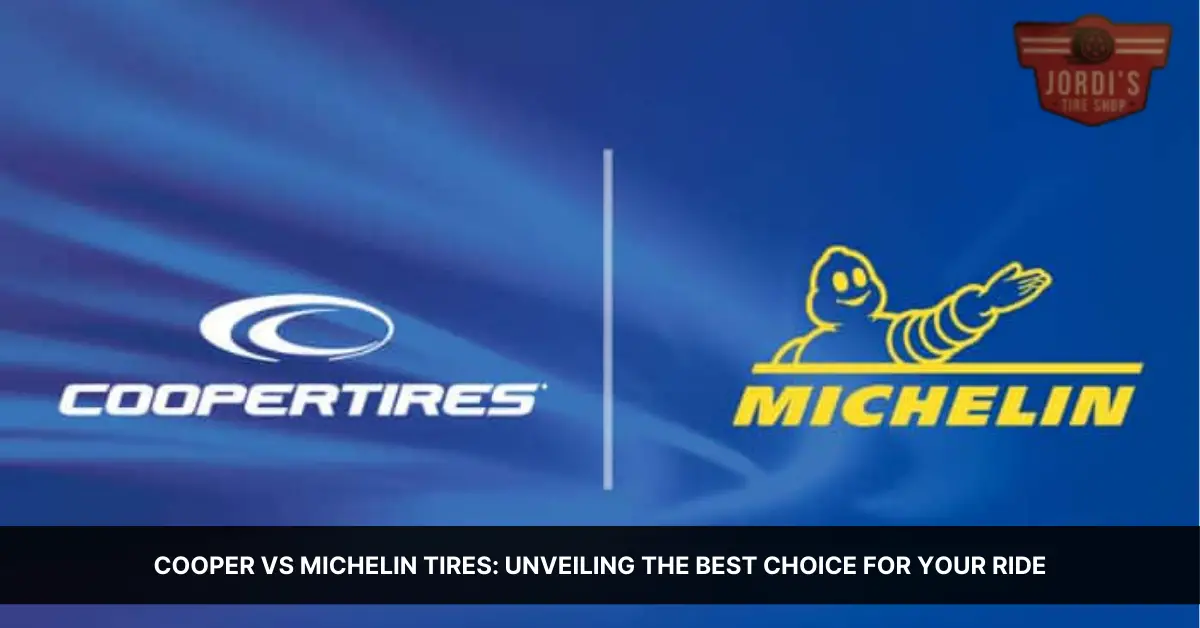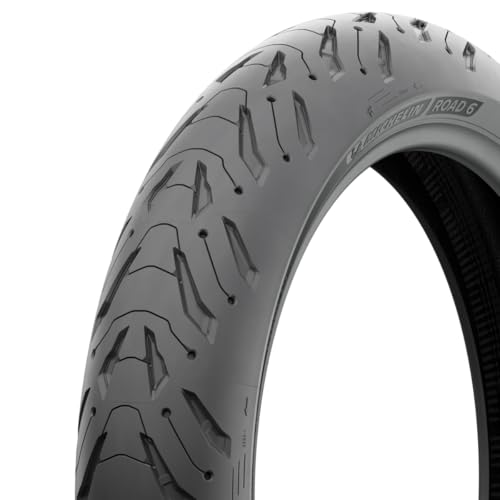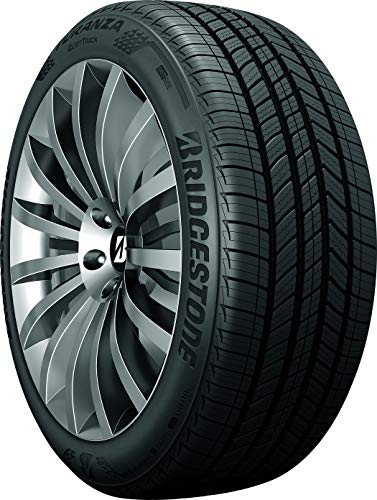When it comes to tire selection, every driver’s needs are unique. Are you looking for rugged durability for off-road adventures, or perhaps high-performance handling for those fast-paced highway drives? Two brands that cater to these diverse needs are Cooper and Michelin, each boasting their unique strengths.
Cooper Tires, known for their affordability and durability, offer models like the Discoverer series, designed for the more adventurous drivers. On the flip side, Michelin, renowned for its premium quality and superior on-road performance, presents models such as the Pilot Sport series for those seeking precision handling.
In this in-depth comparison, we’ll explore the strengths and weaknesses of both brands, focusing on factors like safety, performance, and fuel efficiency. Our goal? To help you make an well-informed choice and find the perfect tire that aligns with your driving needs and preferences.
Histories of Cooper and Michelin
In this section, one delves into the rich histories of two leading tire manufacturers, Michelin and Cooper. Understanding their historic trajectories provides deeper insight into their tire technologies and performance characteristics.
Brief History of Michelin Tires
Michelin, a tire manufacturer renowned globally, emerged in France in 1889. Innovation and high-quality products became its hallmark from the onset. Throughout its operational years, Michelin asserted itself as a leader in new tire technologies, continually improving performance, safety, and fuel efficiency. This expertise reflects in its popular long-haul tires designed explicitly for heavyweight vehicles such as RVs.
Brief History of Cooper Tires
Contrastingly, Cooper Tires were founded later in 1914 in the United States. The brand garners a reputation for producing reliable, affordable, and durable tires, particularly favorable for trucks and SUVs. Coopers’ emphatic focus on delivering robust performance under challenging driving conditions garnered them a important following among those seeking off-road RV adventures.
Technical Differences Between Cooper and Michelin Tires
Exploring deeper into the technical aspects of Cooper and Michelin, it becomes evident that their distinct identities stem from their innovative technologies and unique design features. Both brands continually strive to cater to diverse driving needs, employing advanced tire design techniques, loaded with a range of functionalities.
Innovation and Technologies
Michelin’s advantage often lies in its relentless pursuit of advanced tire technologies. Models like the Pilot Alpin or CrossClimate series proudly showcase this. They’re engineered for challenging conditions, particularly winter and wet terrains. A standout feature is their innovative rubber compounds. Formulated to remain pliable in colder temperatures, they ensure steady grip on tricky surfaces, like snow or ice.
In the Cooper camp, an equally impressive innovation is their ArmorTek3 construction, mentioned in models such as the Discoverer series. This technology is known to enhance durability, a critical characteristic for tires facing rugged terrains or enduring regular off-road adventures. While they may lack the finesse of Michelin in snowy or wet conditions, these tires compensate with their affordability and solid performance in other terrains.
Design Features
Studying the design attributes of the tires from both manufacturers provides further insight. In the case of Michelin, the emphasis lies in integrating sophisticated tread designs. Deep sipes and grooves are a common sight, crafted to effectively mobilize water, so diminishing the risk of hydroplaning on damp roads.
Switching focus to Cooper, the Discoverer series reveals robust tread patterns, hinting at their off-road adventure capabilities. They prioritize durability, exhibiting the brand’s commitment to deliver long-lasting products that offer excellent value for money.
It’s clear that both Michelin and Cooper offer drivers an array of tire options customized to exact conditions and driving needs. The ultimate decision hinges on your individual preference, whether it be for advanced handling, rugged durability, or something in between. So, as you weigh out these technical distinctions, choose tires that align best with your requirements.
Performance Analysis: Cooper and Michelin Tires
Exploring deeper into an analytical comparison between Cooper and Michelin tires, it’s essential to focus on their performance skills under varying road conditions and weather scenarios. Let’s further dissect how these popular tire brands stack up against each other when it comes to on-road and off-road performance, as well as how they adapt to winter and wet weather driving conditions.
On-Road Performance Comparison
Michelin undeniably shines when it comes to on-road performance. Its tire models, such as the fortifiable Pilot Alpin and CrossClimate series, are expertly crafted to meet the high demands of daily street travel. With sophisticated tread designs and innovative rubber compounds, Michelin tires consistently offer smoother rides, reduced road noise, and effective water evacuation—reducing the risk of hydroplaning on wet roads.
But, Cooper Tires, known for their reliability and durability, perform admirably in on-road conditions. Though they may not match Michelin’s high-end performance reputation, their products offer a comfortable ride and commendable mileage expectancy.
Off-Road Performance Comparison
Adventure seekers and off-road enthusiasts can find more favor in Cooper Tires. Cooper’s Discoverer series, for instance, constructed with ArmorTek3 technology, features rugged tread patterns designed predominantly for off-road escapades. Cooper’s emphasis on durability creates tires that perform effectively under rugged terrain and harsh environments, assuring an unyielding grip on unpredictable surfaces.
While Michelin offers some off-road options, their speciality lies primarily in improving on-road performance. But, their tires are engineered with high-quality materials that can adequately handle moderate off-road conditions.
Winter and Wet Weather Performance Comparison
In times of biting cold and slick roads, Michelin again takes lead with tires specifically designed for winter and wet conditions. The Pilot Alpin and CrossClimate series boast innovative rubber compounds that remain pliable in cold temperatures, ensuring a reliable grip on snow and ice. Also, their intricate tread designs with deep sipes and grooves effectively evacuate water, significantly reducing the risk of hydroplaning.
On the flip side, Cooper’s winter and wet performance tires, such as the Discoverer True North or Evolution Winter series, offer respectful traction and handling. But performance varies depending on exact models and might not consistently match the performance level of Michelin tires in severe winter or wet conditions.
Comparing Durability: Cooper Versus Michelin
In the search for ultimate tire durability, we hone in on two industry giants: Cooper and Michelin. Consider this section your navigation tool as we investigate deeper into the lifespan expectations and tread wear of these brands.
Lifespan Expectations
Recognizing that longevity plays a crucial role in your tire choice, let’s examine how Cooper and Michelin fare. Historically, Cooper grips the market for adventurous terrains, owing largely to its durable ArmorTek3 technology. They’ve demonstrated a capacity to withstand tough driving conditions, ensuring you get important mileage on the road less traveled.
Michelin, on the other hand, showcases strength in everyday consistency. They’re trusted for their lasting reliability, hardly showing tread wear from daily wear and tear. Engineered using high-quality materials and innovative manufacturing processes, Michelin tires promise to stick around through the journey, keeping you safe and secured.
Treadwear Analysis
Let’s dig deeper into treadwear performance, a factor impacting both safety and lifespan. Cooper tires prioritize durability and versatility, catering to the rugged and off-road terrain enthusiasts. They hold their own in demanding conditions thanks to sturdy construction, yet expect some signs of erosion over extended use.
Michelin leans heavily on its reputation for enduring minimal tread wear, even on routine use. Their ardent insistence on high-quality materials and advanced manufacturing processes reinforces their commitment to tire longevity. Rest assured, you’ll find Michelin’s dedication to preserving tire health mirrored in reduced tread wear.
To conclude, both Cooper and Michelin bring robust durability to the table, each with a unique focus. Whether you drive often through adventurous terrain or stick to the regular roads, priorities and preferences will guide your ultimate choice between these well-established tire manufacturers.
Assessing Comfort and Noise Levels
Based on road tests, both Cooper and Michelin have individual strengths in comfort and noise reduction. On Cooper’s part, their proprietary technology ensures minimized discomfort while driving. In contrast, Michelin’s noise reduction capabilities make it a top choice for drivers who prioritize smooth rides.
In terms of achieving a comfortable ride, Cooper makes use of high density tread elements. Integrated into models like the Evolution Tour, this feature provides better responsiveness, ensuring that your drive remains comfortable even across long distances. This design, paired with the brand’s energy-absorbing inners, significantly reduces the vibration you would typically experience on bumpy terrains.
On the noise reduction side, Michelin employs its NoiseGuard technology, which is built into tires like Primacy MXM4. This technology employs a exact sound barrier designed to provide a quiet and comfortable ride. By absorbing the noise created by the tire and the road, Michelin creates a more silent driving experience, perfect for those long commutes or family road trips.
But, it’s important to remember that no tire is flawless, and both brands have varying performance in different settings. For instance, Cooper tires, while providing excellent comfort, tend to generate more noise in wet conditions. Conversely, Michelin tires, although providing an almost silent driving experience, might not deliver the same comfort level when driving on challenging terrains.
By carefully considering these factors, you’ll ensure the tires align with your exact driving needs, whether it’s comfort, noise control, or a balance of both. This assessment will undoubtedly contribute to your overall driving experience, and indeed, to your satisfaction with the chosen brand, be it Cooper or Michelin.
Pricing: Michelin and Cooper Tires
Making an well-informed choice on tire selection extends beyond individual driving needs, safety, and performance. Cost-effectiveness plays an equally salient role. In this section, we break down the pricing structures of Michelin and Cooper tires and evaluate their value for money.
General Market Prices
Based on the forum data, Michelin tires often sell around $2,400 for a six-pack. On the other hand, Cooper tires present a less expensive equivalent, offering the same quantity as low as $1,200. A Michelin tire dealer from Newark, Delaware, specifically, offers each of their tires for roughly $219. This data clearly hints at the more affordable nature of Cooper Tires as compared to their Michelin counterparts. Of course, the market prices can fluctuate based on factors such as region, dealer, and exact tire models.
Value for Money Comparison
Considering the price tags alone can be misleading. Real value is assessed when you juxtapose the cost with the benefits offered. Both Cooper and Michelin tires echo their own strengths and meet exact needs.
On one side, you’ve got Cooper tires, known for their durability and off-road capabilities. Generally, these tires are seen to offer good performance in challenging driving conditions while retaining affordability. Cooper’s positive ratings from users, such as race car driver Al Unser, underline their reliability for more adventurous drives, positioning them as an appealing budget-friendly alternative.
On the other hand, Michelin tires are synonymous with quality and on-road performance. Even though a higher initial investment, they reward you with precision in handling, superior grip in colder climates, and overall smoother rides. So, choosing Michelin means paying for an elevated driving experience and perhaps greater peace of mind.
In the end, while cheap doesn’t always mean better, expensive doesn’t equate to value either. Your personal priorities and driving needs become the ultimate determinants of value for money.
Feedback from Customers
Real-industry experiences of drivers offer invaluable insights into the performance of both Cooper and Michelin tires. In this section, we investigate into customer feedback across different platforms, shedding light on users’ experiences, ranging from mileage achieved to ride comforts.
Michelin Tires Reviews
Users commend Michelin for the longevity and superior performance of its tires. The Defender series, for instance, gets impressive reviews for its remarkable tread life. Many seasoned drivers share that Michelin tires routinely deliver high-quality rides with exceptional comfort and minimal noise – a combo perfect for long highway drives.
But, it’s not all sunny in Michelin land. Some users highlight the pricing as a setback. As top-of-the-line products, Michelin tires cost significantly more than other brands. Coupled with superior performance, it might be justified. But you’ll need to decide if your budget aligns with the premium tag.
Another point raised by certain off-road enthusiasts is the somewhat soft feel of Michelin tires for rough terrains. Most users explain that Michelin tires excel on highways but they might not be the best option for heavy-duty off-roading adventures.
Cooper Tires Reviews
Cooper tires, noted for being cost-effective and durable, have earned praise from different corners. For example, some drivers reported around 78,000 miles on a set of Cooper tires before deciding to swap – an impressive feat by any standards.
Users also appreciate the superior wet weather traction properties offered by these tires, thanks to their great tread and carcass patterns. The larger tires from Cooper, plus to providing a smoother and more comfortable ride, manage their load well, making them ideal for towing operations.
But, users point out that for the best experience, you must adjust your tire pressures when the vehicle is unloaded. If you want a better ride, tweak these pressures. Overall, Cooper tires have earned a favorable reputation for their top-notch balance of performance, durability, and affordability.
While customer reviews manifest valuable firsthand experiences, remember that every driver’s needs are unique. So, choose a tire that best suits your exact driving habits and conditions, not merely based on another driver’s experience.
Conclusion
Handling the tire market can be challenging, but understanding your driving needs can make the decision easier. If you’re budget-conscious and often venture off-road, Cooper’s durable and affordable tires might be your best bet. Their Discoverer series is a standout for those who brave challenging terrains. But if you’re after a smooth ride and top-tier performance, particularly in wet and winter conditions, Michelin’s premium offerings are worth considering. The Pilot Sport series is a testament to their commitment to precision handling.
Remember, comfort and noise control also play a part in your driving satisfaction. Cooper’s high-density tread elements enhance comfort, while Michelin’s NoiseGuard technology reduces road noise. But, Cooper may be noisier in wet conditions, and Michelin might not provide the same comfort off-road.
When it comes to pricing, Michelin comes with a higher tag, but their superior quality and performance justify the cost. Cooper, on the other hand, offers reliable performance at a more affordable price.
Finally, customer reviews offer valuable insights, but your personal driving habits should guide your tire selection. Whether you opt for Cooper or Michelin, you’re investing in a brand with a rich history and commitment to innovation. So, choose wisely, and enjoy the ride!
Related Posts:
- Unveiling the Cooper Discoverer ATP II: The All-Terrain Tire Revolutionizing Your Drive
- Cooper Discoverer Rugged Trek vs BF Goodrich KO2: The Ultimate Off-Road Tire Showdown
- Cooper Discoverer AT3 Vs Falken Wildpeak AT3W: A Detailed Comparison for the Wise Driver
- Cooper Discoverer AT3 vs Toyo Open Country AT3: A Comprehensive Tire Showdown
- Cooper vs Hankook Tires: Unbiased Guide To Choosing the Best for Your Ride
- Cooper vs Bridgestone Tires: Unveiling the Best Choice for Your Vehicle
- Cooper vs Goodyear: Unraveling the Best Value Tire for Your Vehicle
- Cooper vs Toyo Tires: Unraveling the Best Choice for American Drivers
- Cooper vs Falken Tires: Comprehensive Comparison for the Savvy US Buyer
- Cooper vs Yokohama Tires: Detailed Comparison for Smarter Buying Decisions
- Cooper vs. Pathfinder Tires: Unleashing the Best for Your Ride in the US
- Cooper vs Continental Tires: In-depth Review and Comparison for the Savvy US Driver



































